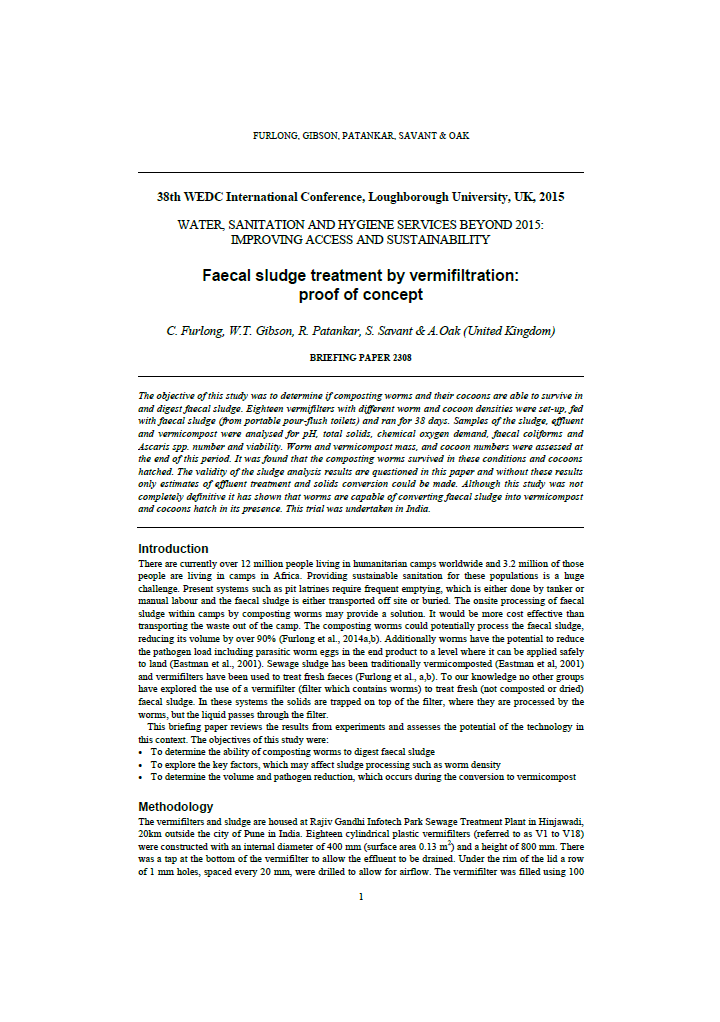Faecal sludge treatment by vermifiltration proof of concept Furlong, C., Gibson, W. T., Oak, A., Patankar, R. (2015)
The objective of this study was to determine if composting worms and their cocoons are able to survive in and digest faecal sludge. Eighteen vermifilters with different worm and cocoon densities were set-up, fed with faecal sludge (from portable pour-flush toilets) and ran for 38 days. Samples of the sludge, effluent and vermicompost were analysed for pH, total solids, chemical oxygen demand, faecal coliforms and Ascaris spp. number and viability. Worm and vermicompost mass, and cocoon numbers were assessed at the end of this period. It was found that the composting worms survived in these conditions and cocoons hatched. The validity of the sludge analysis results are questioned in this paper and without these results only estimates of effluent treatment and solids conversion could be made. Although this study was not completely definitive it has shown that worms are capable of converting faecal sludge into vermicompost and cocoons hatch in its presence. This trial was undertaken in India.
Bibliographic information
Furlong, C., Gibson, W. T., Oak, A., Patankar, R. (2015). Faecal sludge treatment by vermifiltration proof of concept Loughborough University, UK.
Filter / Tags
Faecal sludge treatment processesCamps (emergency or longer term)English

